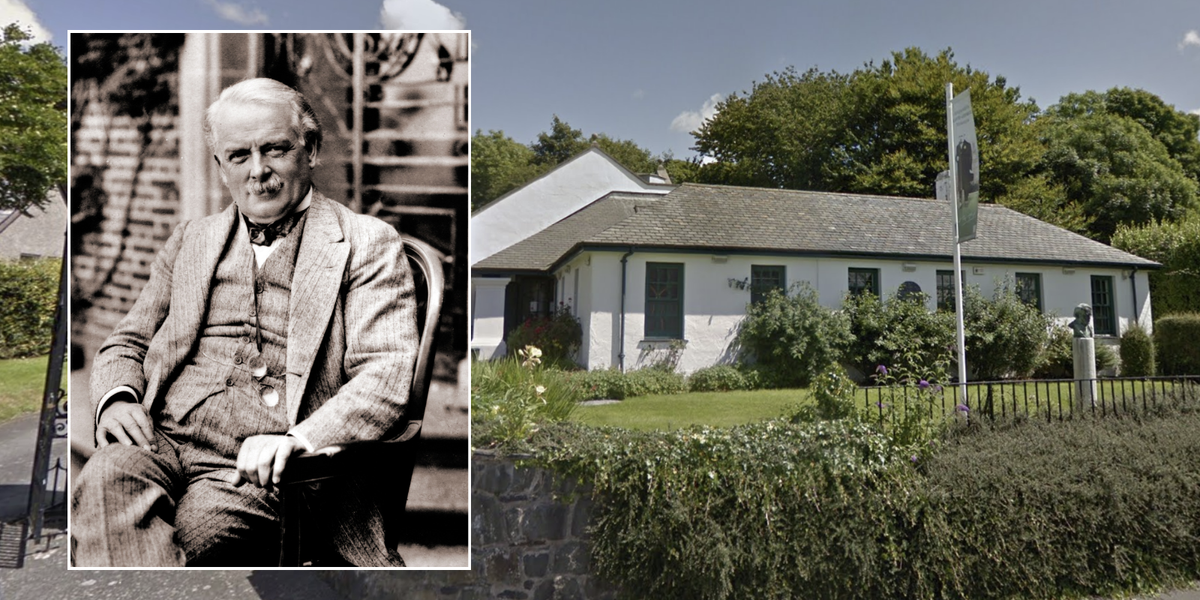Decolonising History: The Transformation of David Lloyd George’s Childhood Home
In a move that has sparked considerable debate, the childhood home of David Lloyd George, Britain’s Prime Minister during the First World War, is set to undergo a significant transformation as part of a Welsh Labour-led initiative aimed at promoting diversity and inclusivity. While Lloyd George was born in Manchester, his early years were spent in a quaint cottage in Llanystumdwy, Wales, which has since been converted into a museum dedicated to his legacy. However, the museum is now being integrated into a broader, taxpayer-funded "anti-racist" drive that seeks to reshape historical narratives across Wales.
A Shift in Historical Narrative
The museum, which honors Lloyd George’s contributions to British history, is currently collaborating with a "decolonisation consultant" to modernize its approach to history. This initiative is part of a nationwide effort to address historical narratives that have traditionally marginalized the experiences of black and minority ethnic (BAME) communities. The Welsh Government has allocated grants to support museums in this endeavor, aiming to "set the right historic narrative" and promote a multicultural, vibrant Wales.
The project has already begun to take shape, with plans for future exhibitions that will include LGBT displays, reflecting a commitment to inclusivity in storytelling. This modernisation effort is not merely cosmetic; it aims to fundamentally alter how history is presented, ensuring that diverse perspectives are integrated into the museum’s narrative.
The Role of Anti-Racist Consultancy
The consultancy involved in this project, known as "Re:Collections," is an anti-racist initiative run by the Association of Independent Museums. It advocates for the inclusion of BAME perspectives and experiences as integral components of historical documentation. The consultancy emphasizes the need for museums to present a broader diversity of narratives, ensuring that the contributions of all communities are recognized and celebrated.
As part of this initiative, staff at Gwynedd Council Museums, which oversees the Lloyd George site, have received "anti-racist" training funded by the Welsh Government. This training is designed to equip museum professionals with the tools necessary to approach history from a more inclusive and equitable standpoint.
Community Reactions and Criticism
The plans to "decolonise" Lloyd George’s childhood home have not been without controversy. Critics, including conservative commentator Iain Dale, have expressed concerns about the direction in which the country is heading, suggesting that such initiatives reflect a broader trend of "woke" culture that prioritizes ideological agendas over historical accuracy. Dale’s remarks highlight a growing sentiment among some that these efforts may be distorting or oversimplifying complex historical narratives.
Andrew RT Davies, the leader of the Welsh Conservatives, has also weighed in, criticizing the Welsh Labour government’s focus on historical reinterpretation while pressing issues like NHS waiting lists remain unresolved. He argues that the government’s anti-racist action plan has become a distraction from more pressing societal concerns.
The Welsh Government’s Perspective
In response to the criticism, a Welsh Government spokesperson defended the anti-racist Wales action plan, stating that it is built on the values of anti-racism and aims for zero tolerance of racial inequality. The spokesperson emphasized the importance of representing the history and culture of black, Asian, and minority ethnic people, ensuring that their contributions to Welsh society are acknowledged and celebrated.
The initiative is part of a broader strategy to ensure that libraries, galleries, museums, and public artworks reflect a diverse and inclusive historical narrative. The establishment of an anti-racist Wales culture, heritage, and sport fund further supports this work, allowing organizations to claim grants for anti-racist projects.
Looking Ahead: A New Era for the Lloyd George Museum
As the Lloyd George Museum embarks on this journey of transformation, it stands at the intersection of history, culture, and contemporary societal values. The museum’s dual focus on honoring Lloyd George’s legacy while integrating diverse narratives reflects a growing recognition of the need for inclusivity in historical storytelling.
While the future of the museum remains uncertain, one thing is clear: the push to "decolonise" history is reshaping how we understand our past and its relevance to the present. As the museum evolves, it will undoubtedly become a focal point for discussions about identity, representation, and the complexities of history in a multicultural society.
In conclusion, the transformation of David Lloyd George’s childhood home into a more inclusive space is emblematic of a broader societal shift towards recognizing and celebrating diversity. Whether this initiative will achieve its intended goals or face further backlash remains to be seen, but it undoubtedly marks a significant moment in the ongoing conversation about how we interpret and present our shared history.
